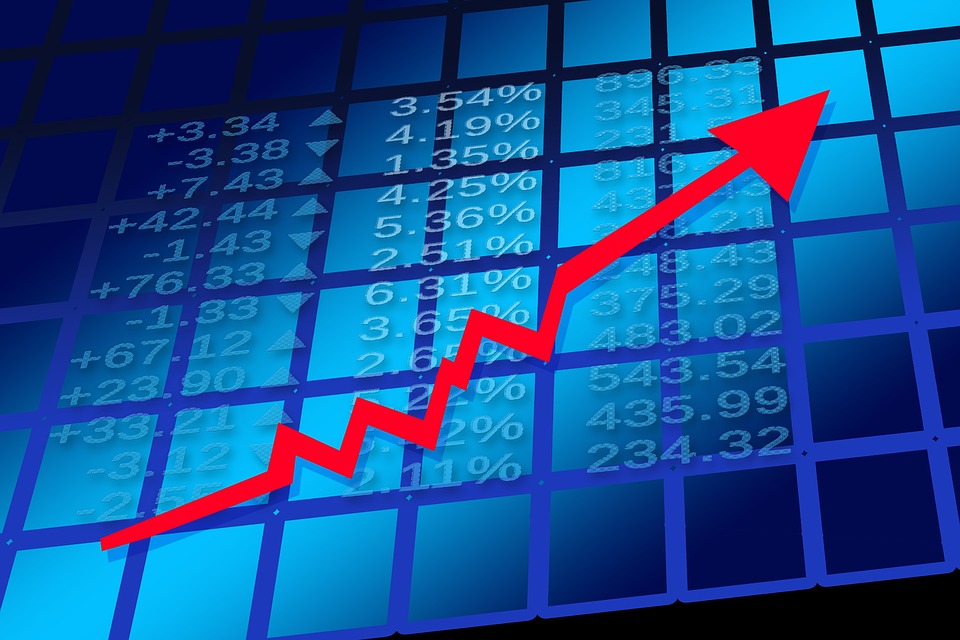Asian shares inch up on Wall Street gains, European futures open higher
On Wall Street, the S&P 500 gained 0.56 per cent, with financials such as Berkshire Hathaway supported by strong earnings.

Asian shares inched up on Tuesday, supported by Wall Street gains although momentum was tempered ahead of the U.S. midterm elections, the first major electoral test of President Donald Trump's big tax cuts and hostile trade policies.
MSCI's broadest index of Asia-Pacific shares outside Japan edged up 0.4 per cent on a positive lead from Wall Street, but the gains were capped by falls in Chinese markets and regional technology shares.
Japan's Nikkei average climbed 1.1 per cent. The Shanghai Composite and blue-chip CSI 300 eased 0.2 per cent and 0.6 per cent, respectively. Both mainland benchmarks were able to claw back some of their earlier losses, however, on news that China's leadership was open to dialogue with the United States to resolve trade disputes.
Shares in Asia-Pacific suppliers of Apple Inc, such as Taiwan's Hon Hai Precision Industry, fell after a report in the Nikkei newspaper that Apple had told its smartphone assemblers to halt plans for additional production lines dedicated to the iPhone XR. The report drove Apple shares 2.8 per cent lower in U.S. trade.
On Wall Street, the S&P 500 gained 0.56 per cent, with financials such as Berkshire Hathaway supported by strong earnings.
Taking the lead from U.S. and Asian peers, European futures pointed to a higher openings, with financial spreadbetters showing London's FTSE, Frankfurt's DAX, and Paris's CAC expected to rise between 0.2 and 0.4 per cent.
Ahead of Tuesday's U.S. midterm elections, investors generally expect opposition Democrats to take over the House of Representatives while Trump's Republican Party is tipped to retain the Senate.
While political gridlock between the White House and Congress could hinder Trump's pro-business agenda and raise concerns about political instability, some analysts say such an outcome may have already been priced in by investors.
The Cboe Skew index, also known as the "black swan" index, hovered not far from its 2-1/2-year low hit Friday, indicating demand for options that provide protection remains tepid.
A higher skew typically indicates investors are buying more protection on heightened anxiety.
"Unlike the U.S. Presidential election or the U.K.'s Brexit referendum, the upcoming U.S. (midterm) elections are not a binary event. So it's unlikely to send stocks significantly in one direction, apart from initial quick reactions," said Yasuo Sakuma, chief investment officer at Libra Investments.
"So with this one, I don't think there is much need to hedge against the black swan risk."
If the Republicans retain their House majority, global stocks are likely to rally on hopes of more tax cuts.
Trump said last month his administration planned to produce a resolution calling for a 10 per cent tax cut for middle-income households.
"Everyone still remembers strong equity rallies after Trump was elected two years ago. So initially stock markets will gain," said Norihiro Fujito, chief investment strategist at Mitsubishi UFJ Morgan Stanley Securities.
"But further tax cuts would boost already large fiscal deficits and push the 10-year U.S. Treasuries yield above its October high almost instantly. Given rises in U.S. bond yields triggered a correction in equities last month, any rally in stocks is unlikely to last long," he added.
The 10-year U.S. Treasuries yield stood at 3.201 per cent, maintaining most of its gains following Friday's strong U.S. jobs and wage data and staying not far from its 7 1/2-year peak of 3.261 per cent hit on Oct. 9.
"Global equities have recovered after their fall in February, which was triggered by a rise in U.S. yields. But this time a recovery will likely be capped because now markets do not have the support they had back in February from tame inflation and the economic boost from Trump's tax cuts," said Shuji Shirota, head of macroeconomic strategy at HSBC in Tokyo.
Many investors also expect Trump to continue to take a hard line on trade, regardless of the outcome of the elections.
"The impact of trade war will start to appear in U.S. economic data in coming months," Shirota added.
In oil markets, crude prices wobbled near multi-month lows after the United States allowed eight countries to temporarily continue buying oil from Iran, addressing supply concerns as Washington formally imposed punitive sanctions on the Islamic republic.
U.S. West Texas Intermediate (WTI) crude futures slipped 0.3 per cent to $62.89 a barrel, after hitting a seven-month low of $62.52 on Monday.
Brent crude futures dropped 0.6 per cent to $72.74 a barrel, near Friday's 2-1/2-month low of $72.16.
Both oil benchmarks have slid more than 15 per cent since hitting four-year highs in early October.
Moves in major currencies were modest ahead of the U.S. election. The dollar rose 0.2 per cent against the yen to 113.44 yen, its highest level in four weeks.
(With inputs from agencies.)
- READ MORE ON:
- Iran
- Sanctions against Iran
- Flag of Iran
- Donald Trump
- Donald Duck
- Republican Party
- Political party
- United States of America
- Berkshire Hathaway
- Share price
- Stock
- Donald Trump presidential campaign
- 2016
- Election
- United States midterm election
- The Republicans (France)
- Republican Party (United States)
- Foxconn
- United Kingdom European Union membership referendum
- United States presidential election










